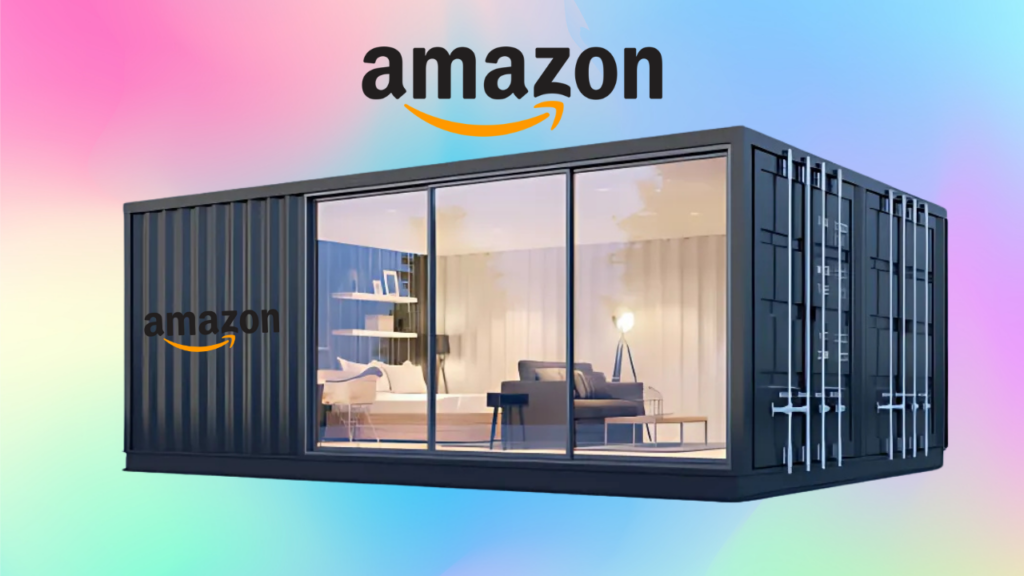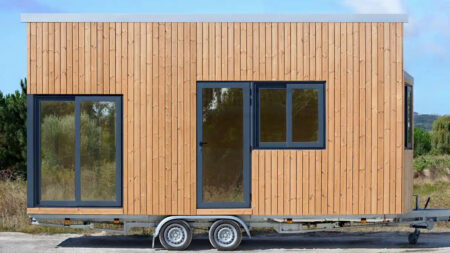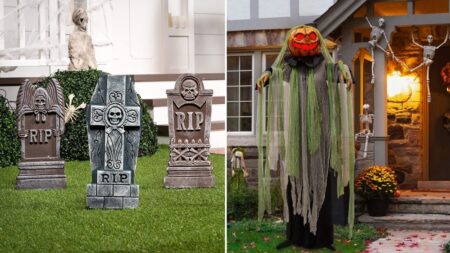Having covered tiny homes for nearly half a decade, interviewed manufacturers worldwide, and even co-authored an e-book; I do not consider myself an expert in the field, since I’ve not lived in one myself. That’s the beauty of journalism: you don’t need to be a football player to write about the sport, nor a politician to analyze government policy. You only need curiosity, patience, and street smartness to uncover compelling stories.
To put out a disclaimer; this article isn’t about some scoop or controversy, this is more of a ‘wake-up call to all fellow bloggers’ who have been reporting and writing irresponsibly or maybe purposely (I hope not) in pursuit of a few clicks and traffic.
As evident from the title, the story is about tiny houses selling on Amazon. Yes, the mobile homes that its haters refer to as a ‘knock-off of caravans, RVs and campervans’ while its lovers call it the micro dwelling. Tiny houses have surged in popularity and many Americans dream of living in one. But as appealing as it may sound, there’s more to it than meets the eye.
Tiny homes vary widely in size, price, and amenities, and if you want to move into one, you’ll need permits from multiple authorities. We’ve already covered this in the saga of tiny homes on wheels, so we won’t revisit that topic, nor will we focus on specific manufacturers who sell these dwellings first-hand. Instead, we’ll tackle a burning question: Are tiny houses available on Amazon? Because, according to some blogs, they certainly are!
People who don’t want to buy a tiny home from a builder or do not have an artistic hand to build one, go for the third option – the e-commerce stores. If you can buy garments, electronics, and even kitchenware, why not a tiny home? Of course, you can. But to put it precisely, it won’t be the same tiny house you see on the catalogs of Wind River Tiny Homes or Modern Tiny Living.
It would rather be a small shed that can accommodate a double bed, a small kitchen, and a portable toilet and is made by some manufacturer in China. So, what is being sold on Amazon are tiny house kits? And if YouTube videos and Redditors are to be believed, “the retail company actually delivers them and sets them up for free”.
But there’s always this hassle of setting up power and water supply. You need land to install a tiny home, moreover, these kits are not even mobile. This kills the entire purpose of buying a tiny house. But there’s no harm in keeping up with the trend. This is not the story, it is just the beginning. The real catch lies when we delve deeper into it and find what’s being sold in the names of tiny homes on Amazon.
People who know a thing or two about tiny houses know, they can either buy them from certified manufacturers, DIY one on their own, or buy them from Tiny House Marketplace. And trust me there is no other way you can buy a full-fledged tiny house unless you want to steal one and claim it to be your dwelling. Pun intended!
But they are being sold on Amazon, aren’t they? And we are not talking about a garden shed or a foldable modular house; we are discussing real tiny homes. They are being sold on Amazon. Well at least, there are a dozen of blogs that are reporting so.
When I refer to blogs, I’m not talking about amateur writers just starting out; these are well-established, reputable websites with high domain authority, significant traffic, and a skilled editorial team. If you search “tiny house on Amazon” on Google and head to the news section, you’ll find a slew of articles from these blogs about tiny houses available on Amazon. To our surprise, these tiny homes – whether modular, shipping container homes, or fully built tiny houses on wheels – range between $5K to $200K and even beyond.
Being in the journalism industry for nearly a decade, I can vouch that these blogs are falling bait. Tiny houses are a hot trend—they generate traffic, which ultimately leads to a boost in ad revenue. I am not questioning anyone’s moral intention, I am raising questions on what’s right. Yes, there are tiny homes on Amazon, the brand or person who has listed them has added pictures, information, and other necessary details. But it’s our responsibility to fact-check, (which we are not doing) and not fall for the bait (which is actually happening).
To break the suspense, tiny homes on wheels, shipping container homes, and modular homes (to an extent) you see on Amazon are bogus. They are fake! And blogs that have reported these tiny homes actively or mentioned them in their listicles are falling for the bait.
The truth is it’s impossible to sell a full-fledged tiny house on wheels on Amazon. A tiny house is designed to be climate-appropriate and must be built to codes and zoning bylaws of a particular nation (and state sometimes). A tiny house or modular home must be certified to a respective country’s ‘Standard Modular Prefabrication’ as well as ‘Tiny House Standard Association (CSA)’. Moreover, they must meet the international building and towing code guidelines. Not only on wheels, tiny houses on foundation, modular homes, futuristic homes, and anything or everything being sold on Amazon should meet the criteria.
If you’re sitting in New Zealand, Belgium, India, or any other part of the world and dreaming of purchasing a tiny home on Amazon, I’m sorry to disappoint you, it’s not going to happen anytime soon. If someone tries to entice you into buying a dwelling on Amazon, they are likely attempting fraud. Shipping a tiny house across borders to another country will require special permits, this hasn’t happened in recent memory, and I don’t foresee it happening anytime soon.
So coming back to the basic question; are tiny houses, shipping container homes, and modular homes being sold on Amazon fraud? Well, the answer is a bit complicated. Not all sellers are frauds. Some genuine manufacturers have been selling foldable tiny homes or modular homes, but there is a huge proportion of sellers who are faking it.
I am not the one saying it, it’s the makers who have come to testimony to report these frauds. Just days back, a reputed blog ran a cover story on a tiny house on Amazon titled, ‘If IKEA Designed a Mobile Home, It Would Look Like This One We Found at Amazon’. The article featured some of the best tiny houses found on Amazon but there was something terribly wrong with the article. It had skipped the process of fact-checking. As not one or two but several tiny homes listed in the piece were not available on Amazon for purchase.
It’s a fraud, if you can please report it, that would be great
We did some fact-checking and it turns out, the tiny house by ‘Nomadnest Tiny House‘, which tops the list in the abovemented article, is fraud. It’s actually Noyer XL, and it isn’t owned and manufactured by Nomadnest, but by a Canadian tiny house company Minimaliste. I reached out to Minimaliste co-founder JP Marquis for his thoughts, he said “It’s a fraud, if you can please report it, that would be great.”
Although this clarifies the case, for a moment I wondered, what if someone has purchased this tiny house and listed it for sale on Amazon. It was far from true. A quick search led me to another collection of tiny houses by Nomadnest, which belonged to a different tiny home and shipping container manufacturer we’ve previously featured on Homecrux.
Interestingly, the fraudulent has paid no attention to the fact that the tiny homes it has listed are from different parts of the world. Case in point: this tiny house comes from an Oceania-based container homes maker and this one comes from a North American manufacturer, and their builders have testified the fact.
For something as expensive, a vendor must be verified on Amazon. In this case, Nomadnest Store doesn’t even seem to exist. Nomadnest is just one case, we have dozens of such fraudulent sellers on Amazon, Saracen Outdoors for instance is a company that claims to have built a two-story tiny house. And, we are not the ones saying it, rather these blogs who won’t give a second thought to what they are covering have featured it. There are examples of reputed blogs like Travel + Leisure, Parents, Real Simple, who from time to time have been covering these tiny homes, without knowing that they are far from being true.
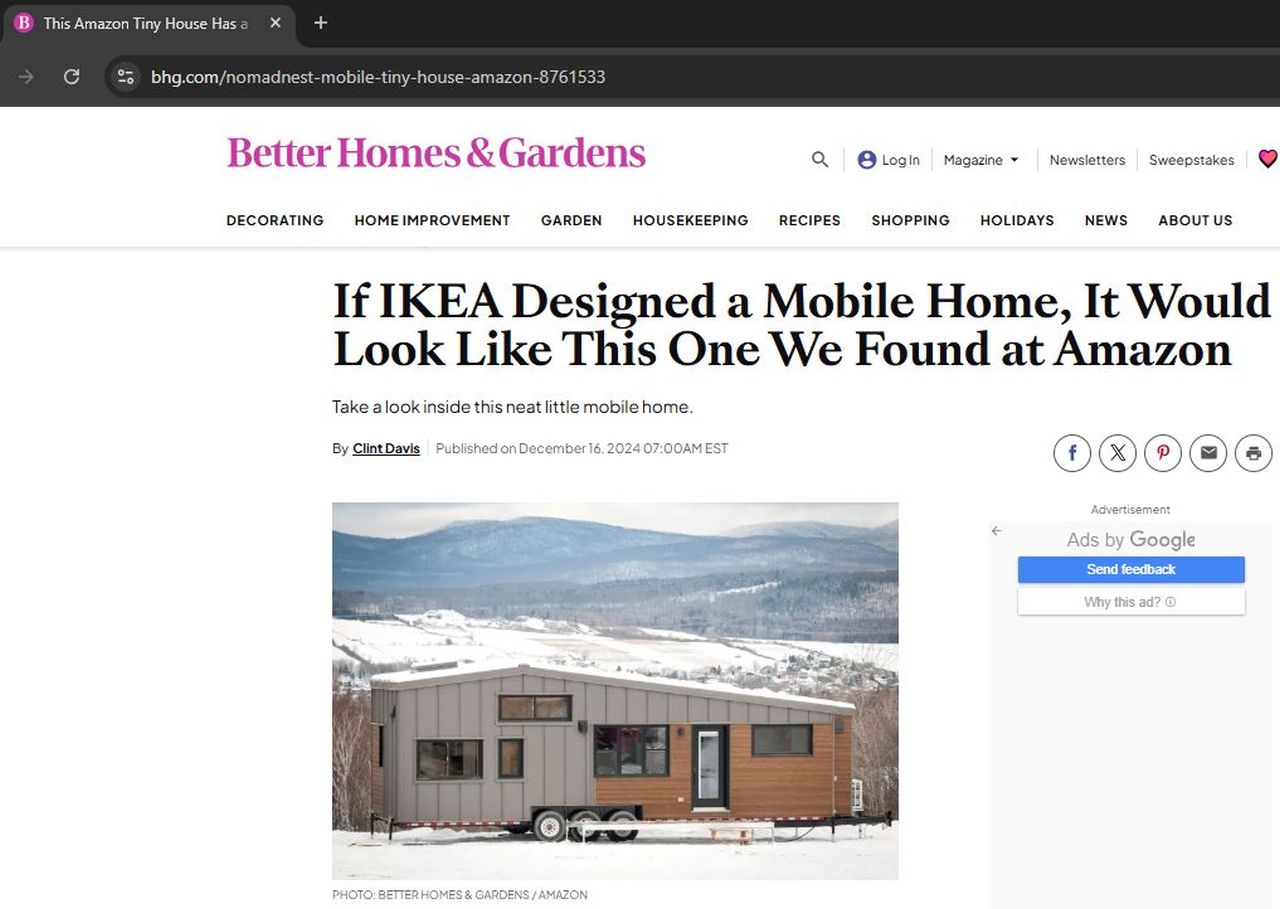
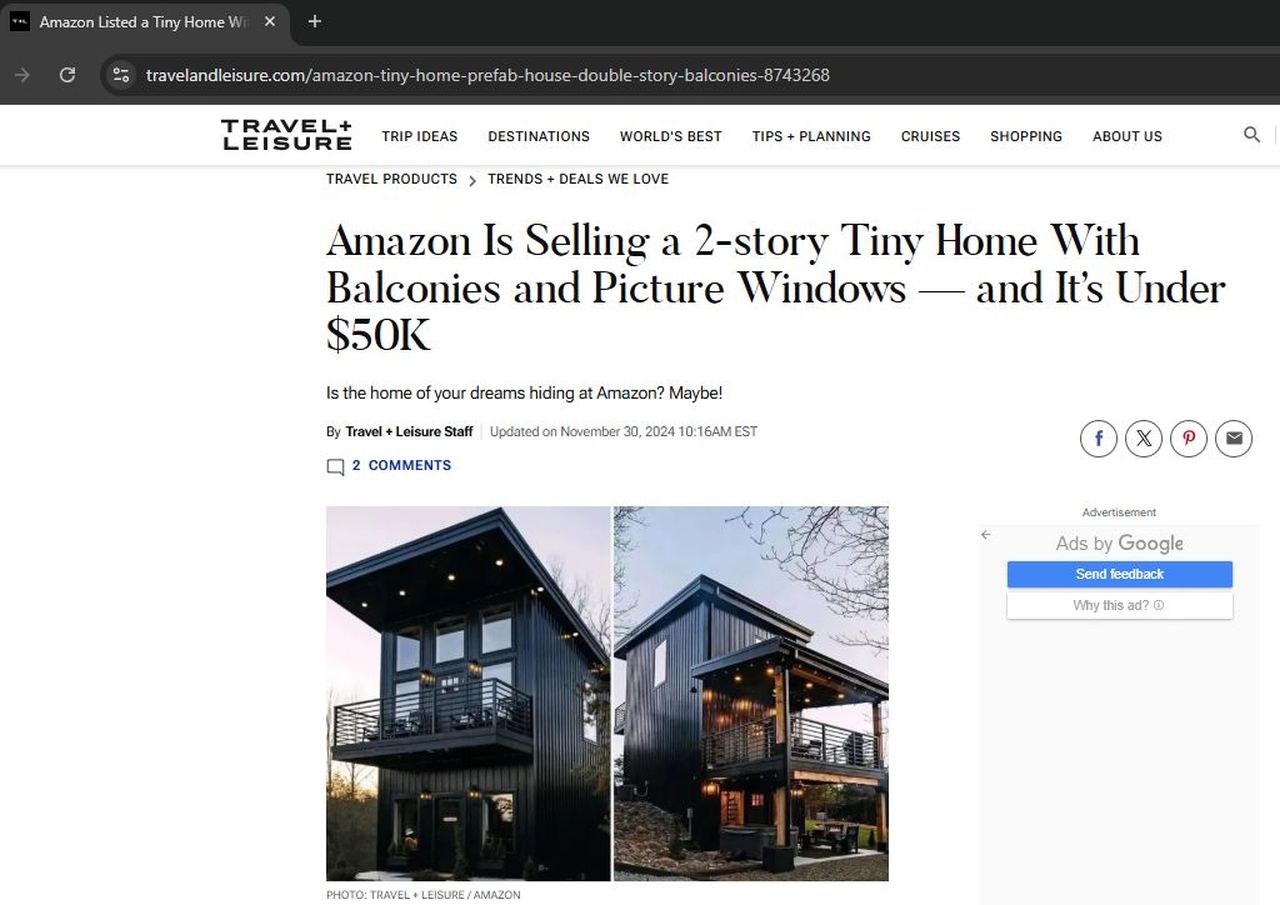
There are no active reports on the internet of anyone being scammed or losing money but even if someone has been, they could be too ashamed to admit it or report it. What this revelation actually teaches us is that everything and anything you see on the internet cannot necessarily be true, you either learn it with time or learn it the hard way.
As for blogs, it shouldn’t take much common sense to realize that transporting a tiny house from one country to another, let alone across continents, is nearly impossible. If you’re still captivated by the idea of covering a tiny house, please check all the details thoroughly (images, dimensions, manufacturer, and country of origin) to avoid false reporting. For tiny house enthusiasts, we’re not saying that all modular homes or tiny home kits sold on Amazon are fraudulent, but it’s crucial to verify every detail before making a purchase.
Follow Homecrux on Google News!
